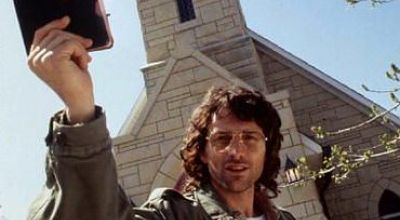Cult Survivor Still Believes in Koresh 20 Years After Waco
Clive Doyle is still a staunch Branch Davidian loyal to the teachings of David Koresh, whose tiny church outside Waco, Texas, was destroyed in a deadly inferno at the end of a standoff with federal agents 20 years ago.
Doyle was one of the followers of Koresh who escaped from the carnage that shocked the nation. The 20th anniversary of the tragedy falls in a week when Americans are reeling from a deadly bombings at the Boston Marathon, and an explosion at a fertilizer plant just 20 miles (32 miles) from Waco.
Authorities have said there is no indication of foul play in the explosion at the fertilizer plant.
“I still believe in David Koresh, and I still believe in most everything he taught,” Doyle, 72, and still living in Waco, said in a telephone interview.
Doyle was among former followers of self-styled prophet Koresh and many visitors who attended a public memorial service on Friday remembering the deaths of the dozens of men, women and children killed two decades ago.
Baylor University, a Baptist university in Waco, hosted an academic symposium on Thursday called “Reflecting on an American Tragedy.”
The siege on the ranch known as “Mount Carmel Center” started with a failed attempt to execute a search warrant for illegal firearms on Feb. 28, 1993, by the U.S. Bureau of Alcohol, Tobacco and Firearms, which enforces U.S. gun laws.
The federal government agency attempted to serve the warrant on the group of Christian followers of Koresh estimated to number more than 100. Known as Vernon Howell before he took the name David Koresh, he went to the prairie in central Texas in the early 1980s along with the breakaway Seventh Day Adventist sect established in the 1950s.
Koresh, a self-styled modern prophet or “Lamb of God,” prophesied the second coming of Jesus Christ, a cornerstone of Adventist beliefs.
The sect resisted the government warrant, and the gunbattle that followed killed four federal agents and six members of the church.
51-Day Standoff
For the next 51 days, a dramatic standoff played out on television and in news headlines across the world. Audiences watched live as sect followers unfurled sheets scrawled with defiant messages and federal agents held news conferences condemning them.
On April 19, 1993, federal agents raided the chapel, using tanks and teargas. The sect followers fought back and a huge blaze erupted, destroying the building.
Doyle escaped but his teenage daughter died in the fire. At the end of siege, investigators found 76 sect members dead – 18 of whom were later determined to have been killed by gunshots. Koresh, 33 at the time, was found with a gunshot to his forehead.
In all, 82 sect members, including 23 children, and four federal agents died at Waco.
The official stand of the U.S. government remains that Koresh was a danger and needed to be taken down.
“Responsibility for the tragedy at Waco rests with certain of the Branch Davidians and their leader, David Koresh, who shot and killed four (federal) agents, wounded 20 others, shot at FBI agents trying to insert tear gas into the complex, burned down the complex and shot at least 20 of their own people, including five children,” said the final report of a special counsel investigating the tragedy.
The stunning event touched off resentment toward government power. Many people believe there was a government cover-up. They are still writing books, making movies and commenting on the saga.
“What I fear is those kinds of events are going to be repeated, because people are (angry) and they are going to resist all of this Obama gun control craziness, and they’ll resist in different ways,” said filmmaker Mike McNulty, referring to President Barack Obama’s gun control proposals.
McNulty’s “Waco: Rules of Engagement” documentary, along with follow-ups “A New Revelation” and “The FLIR Project,” became a touchstone for critics of the government’s actions.
The symposium and the endless media interviews Doyle has done in the months leading up to the anniversary are a way to keep the event in the public mind, Doyle said.
Doyle still holds Bible study with some survivors on Saturdays, and has become the unofficial spokesman of the group. He wrote a book about his life, released in September 2012, called “A Journey to Waco: Autobiography of a Branch Davidian.”
He hopes to be an inspiration for a new generation, who were not born yet when the siege happened, to question authority.
“What happened to us is one of the biggest things in the history of this country. People need to know about it because all of us go around with our head in the sand,” Doyle said.
© 2013 Thomson Reuters. All rights reserved.












